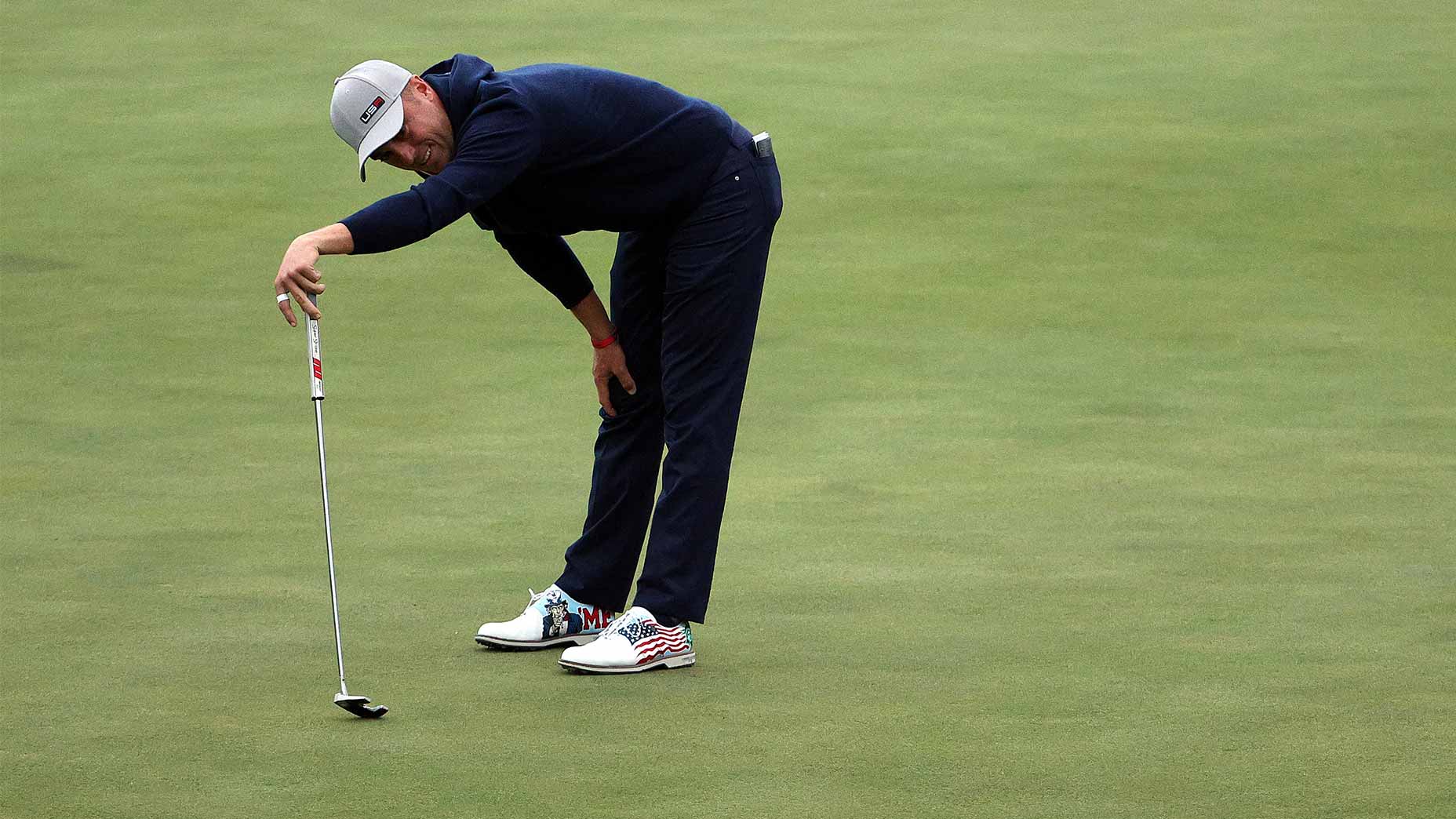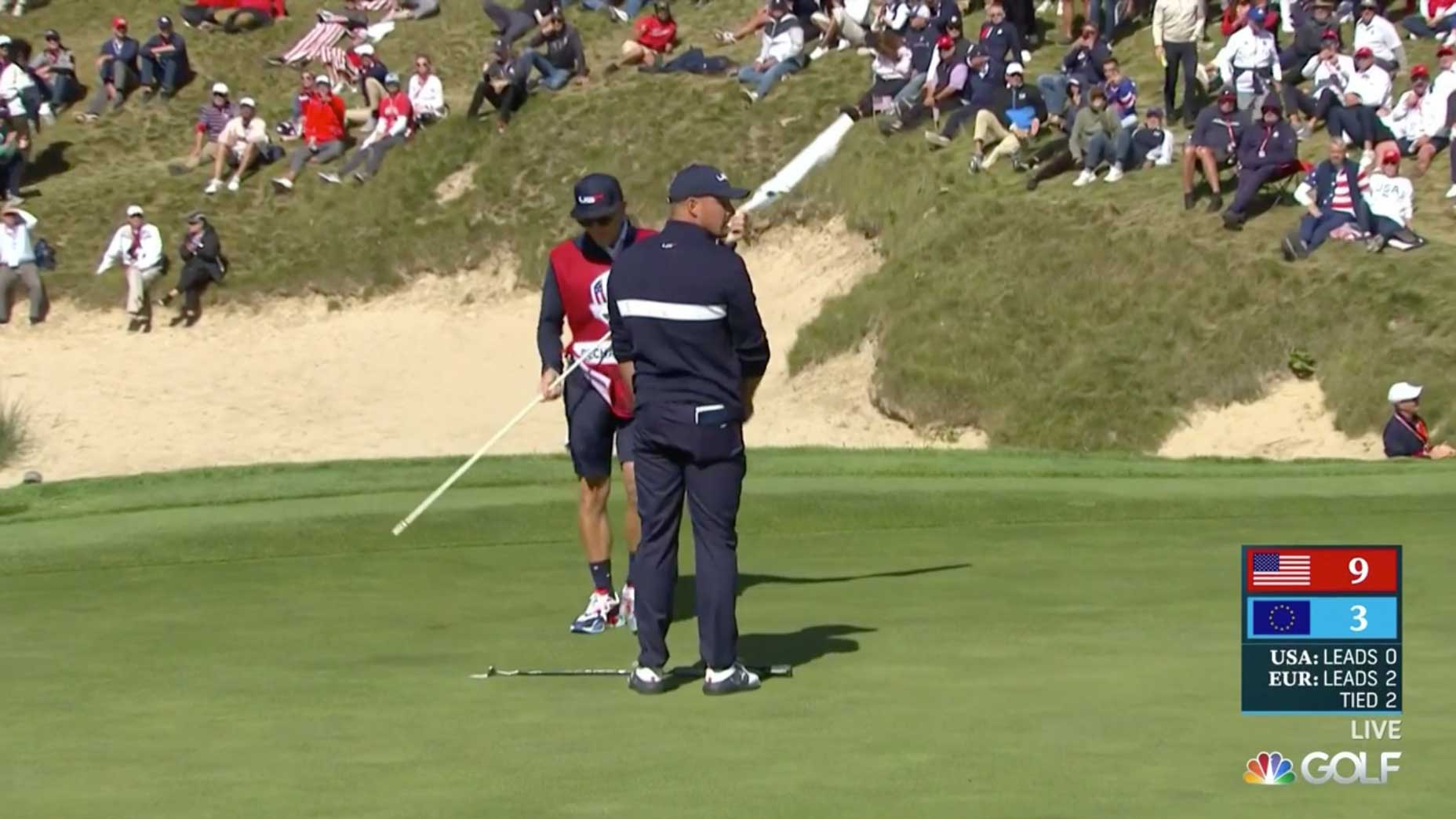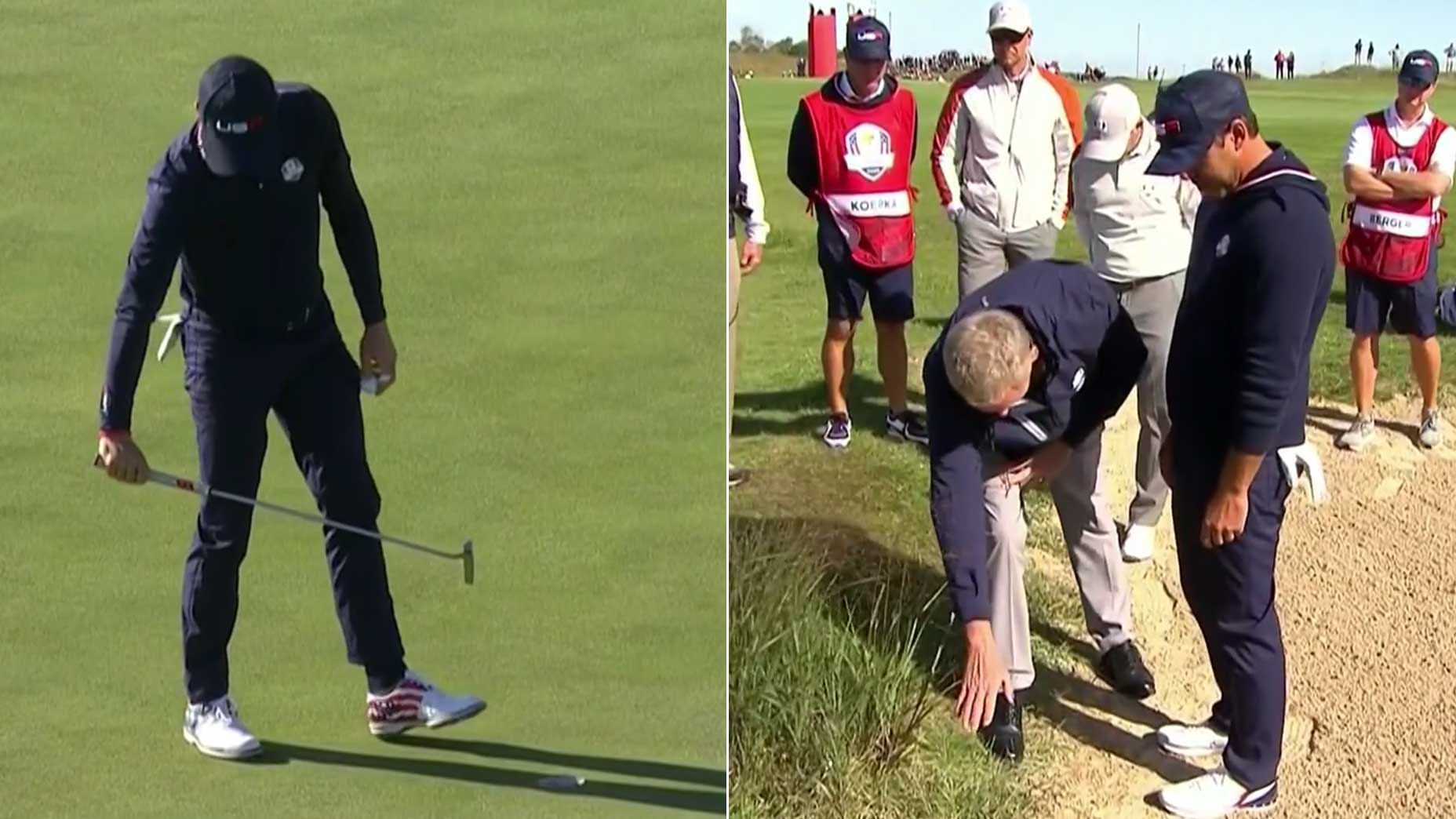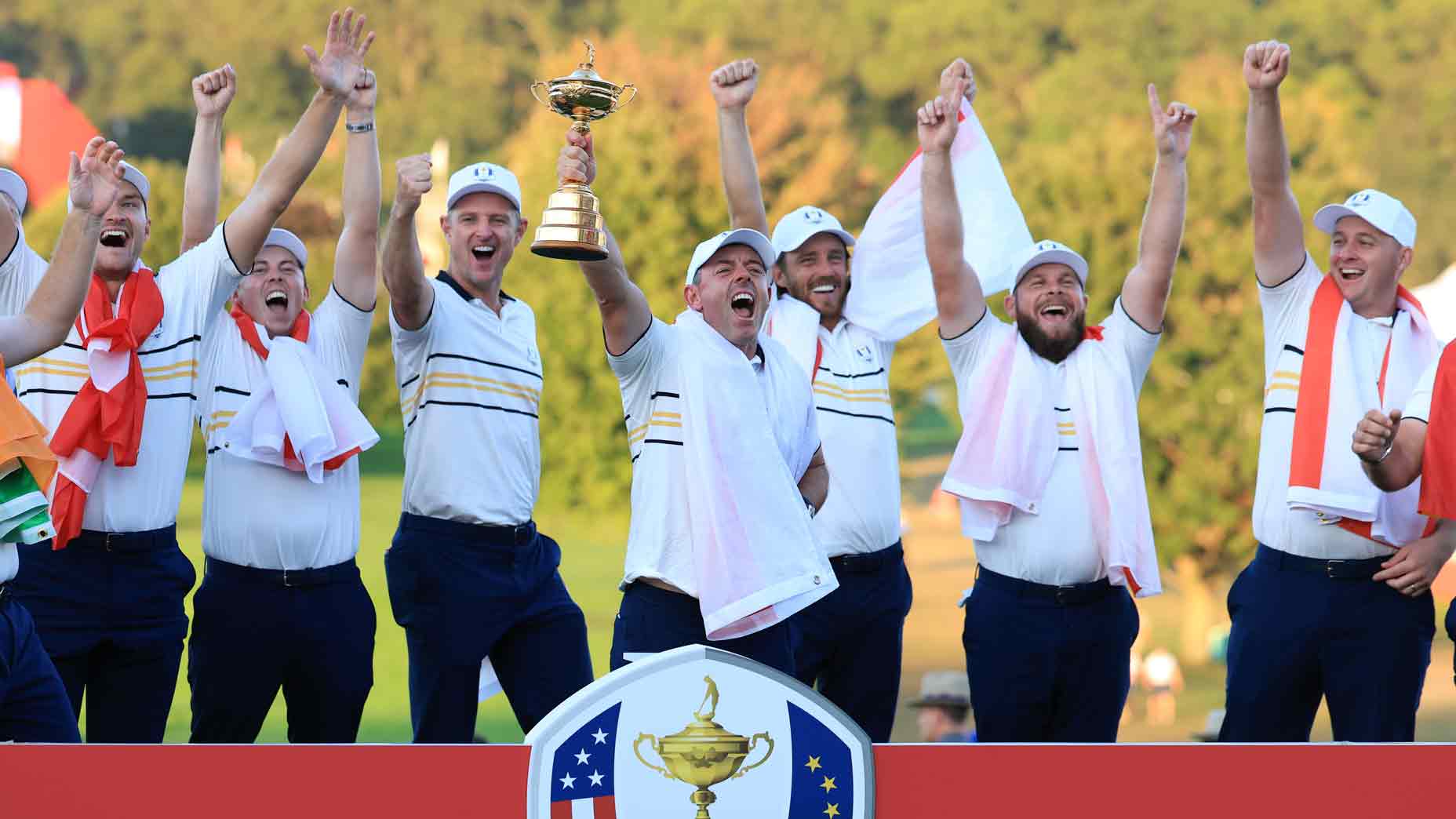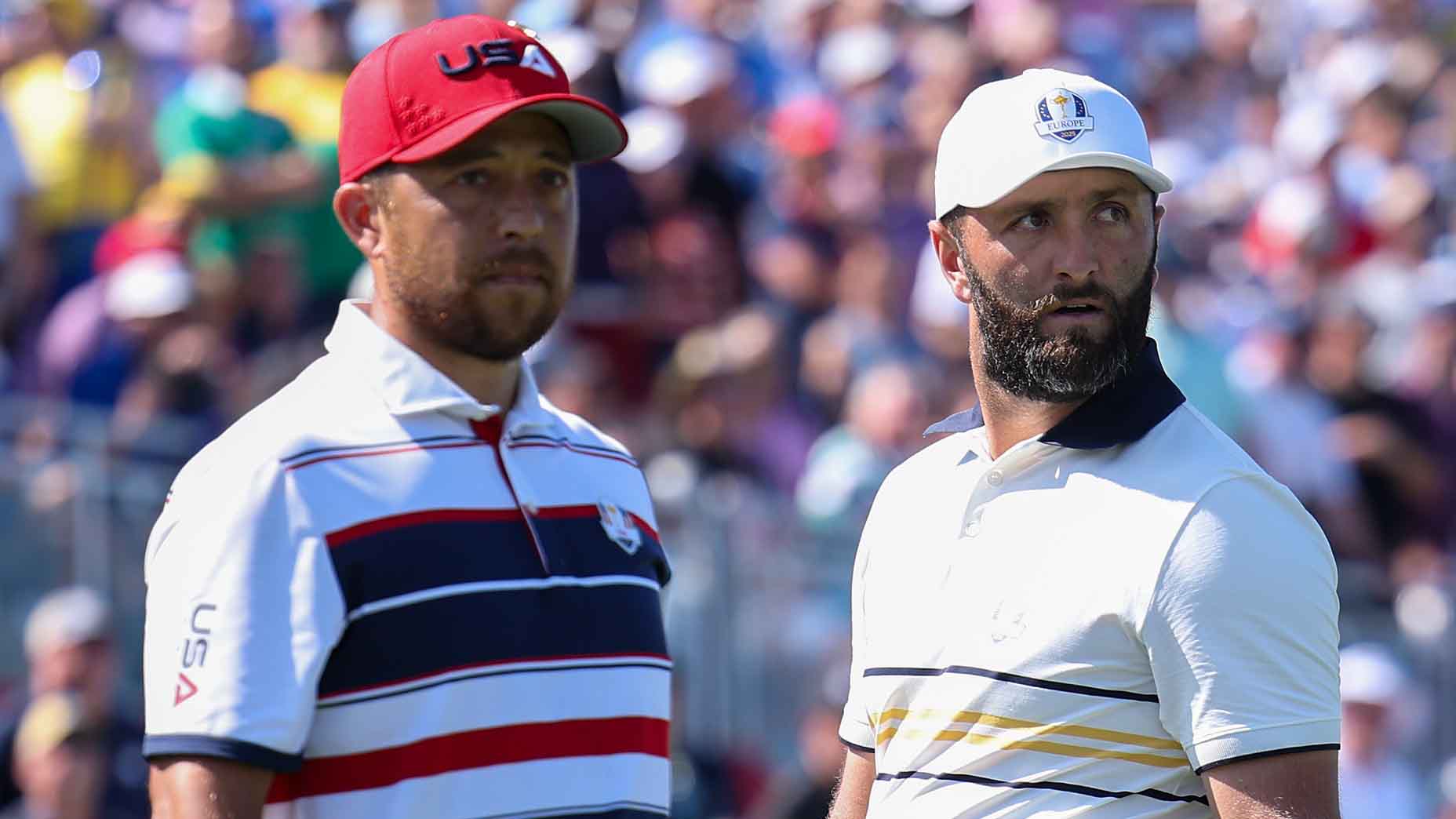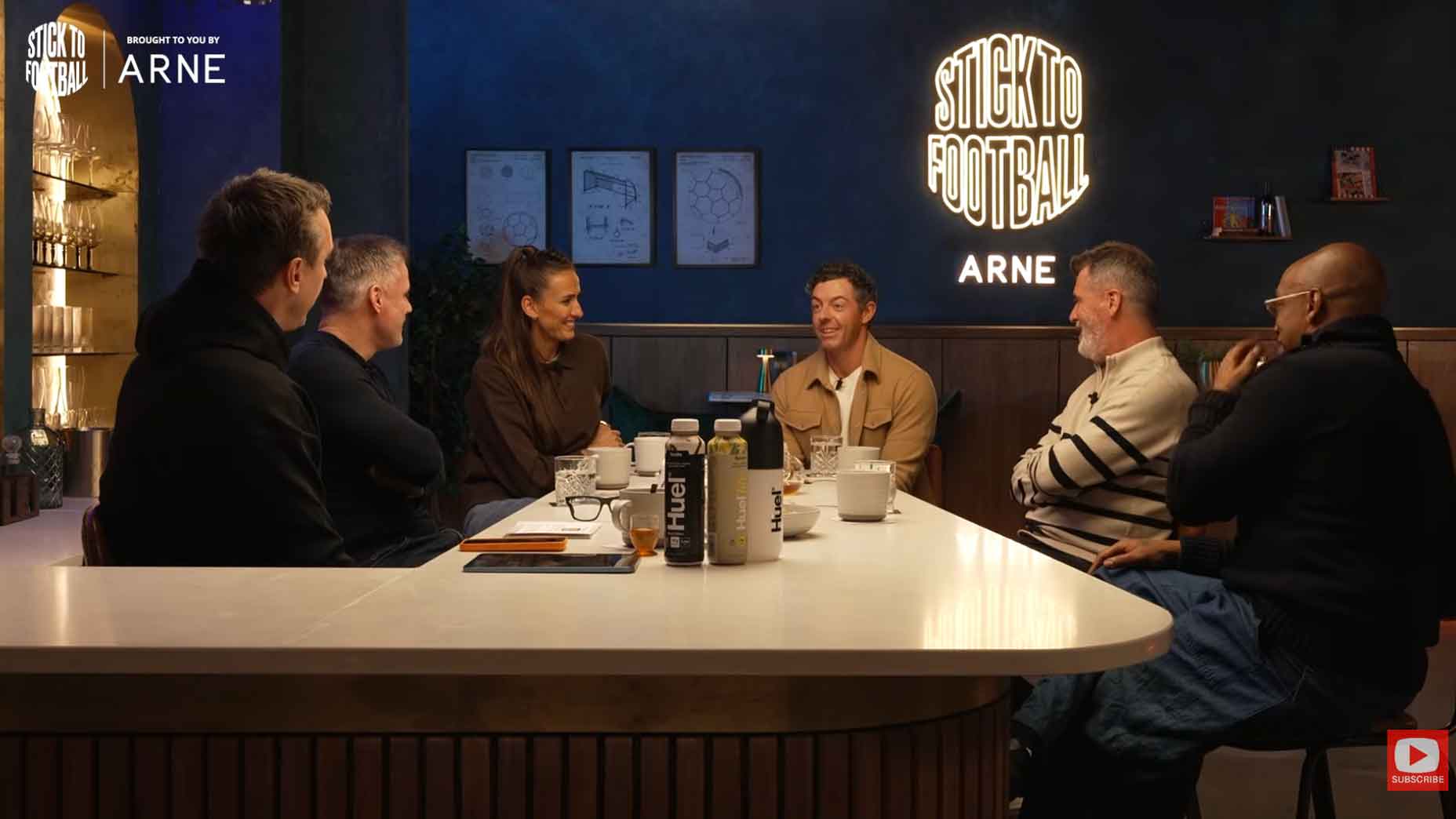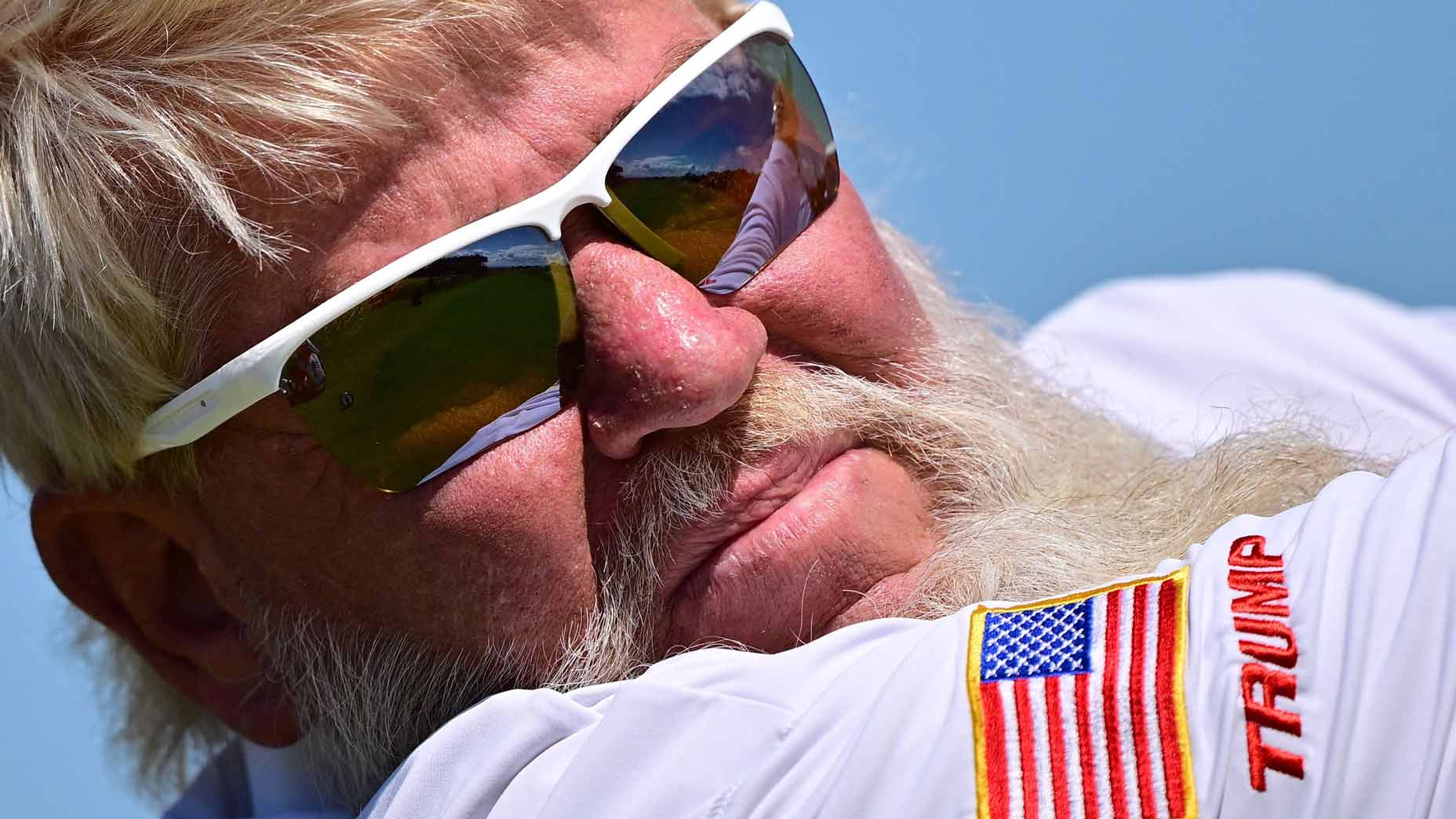HAVEN, Wis. — Regarding this whole concession thing, let’s make this simple: GROW UP, WORLD-CLASS RYDER CUP PLAYERS!
You cannot ask for a putt to be conceded. I’m not talking about the rules, which offer no comment on the matter. This is an issue of basic dignity. If you have to ask, the answer is no. If you complain about not being given a putt, you don’t even understand the principle of the conceded putt.
One-hundred percent of the power of the concession lies in the player (or players) not putting. The starting point for a conceding a putt is that it’s virtually unmissable. You might give a putt as a totally acceptable bit of gamesmanship: give the three-footers early but not late, so with the pressure on, and the player out of practice, he or she might feel out of practice. There’s nothing wrong with that. Even Jack Nicklaus, as appropriate as any golfer who has ever played the game, did that over the course of his career.
You might — as Nicklaus famously did at the 1969 Ryder Cup, to Tony Jacklin — give a putt because you would not want to see your opponent miss it. Again, that’s all on the golfer not putting. If you’re putting, your job is to say and do absolutely nothing. OK, you can slowly walk your way to the ball and silently hope to hear the words, “That’s good.” But that’s about it. Plus this: if your ball is on the lip, and you’re trying to save your back, then you might say, “Good?” And then scoop. But that really is about it.
Lack of conceded putts at Ryder Cup sparks tension among playersBy: Nick Piastowski
What we saw at Whistling Straits on Saturday, on both sides of the aisle, was tacky. So me-me-me.
Let’s review the known examples already in circulation:
On the 8th hole on Saturday morning, Justin Thomas, playing with Jordan Spieth and against Viktor Hovland and Bernd Wiesberger, had a putt of 34 inches, per Shotlink. He hovered his putter horizontally over the line of the putt, as if to indicate that it was inside the leather, and to demonstrate his displeasure with not being granted the putt. He made it.
On Saturday afternoon, on the 1st hole, Shane Lowry of Ireland made the same gesture on a 28-inch putt. Lowry and Tyrrell Hatton of England were facing Tony Finau and Harris English, and the Americans weren’t saying a thing, as is their prerogative. Lowry made it.
In the next group, and again on the 1st hole, Bryson DeChambeau, playing with Scottie Scheffler, had a 31-inch putt. His opponents, Hovland and Tommy Fleetwood, said nothing. DeChambeau holed the putt, then dropped his putter to the ground — to indicate even more demonstrably that he thought the putt was too short not to be given. He glared at the Europeans.
— GOLF.com (@GOLF_com) September 25, 2021
Awful. Inappropriate. Ridiculous.
Can you imagine Arnold Palmer ever making such a gesture? Or Jack Nicklaus? Or Tiger Woods? If you’re annoyed, if you feel offended, take it out on your ball! But for goodness sakes, keep a stiff upper lip.
Memo to Justin Thomas: You have missed many shorter putts than that 34-incher over the course of your career, as all pros have. On a fast green, in the wind, in a Ryder Cup? The make-rate on that putt under those circumstances (having a little guesswork fun here) is about 96 percent. Thomas’ putter, by the way, is 34.5 inches long. He was not within the leather, putter grips are never made out of leather anymore and that custom, if it’s a custom at all, is rooted in duffer golf in the first place. Your name is on the Wanamaker Trophy, Justin, alongside Al Geiberger’s and Byron Nelson’s and Walter Hagen’s. With great trophies come great responsibilities.
Memo to Shane Lowry: you’re from Ireland — your people (broadly speaking) pretty much invented the game! And the game is about getting a ball into a distant hole. You know better! (Ian Woosnam’s late father, Harold Woosnam, from Wales, did not believe in giving putts of any length. There’s something pure about playing golf that way.) Your name is on the Claret Jug, alongside Bobby Jones’ and Ben Hogan’s and Tom Watson’s. With great trophies come great responsibilities.
5 testy moments that prove Ryder Cup Saturday wasn’t always a friendly exhibitionBy: Josh Berhow
Memo to Bryson DeChambeau: Your putter is 43 inches long, with a fat grip. It’s a heavyweight, weighing in at 380 grams. Dropping your putter on the green indicates absolutely nothing about the length of your unconceded putt. Your putter is worth more than many cars — keep it in your hands and in your bag. Your name is on the U.S. Open trophy, alongside Gene Sarazen’s and Julius Boros’ and Justin Rose’s. With great trophies come great responsibilities.
In conclusion: there is no whining in golf. At least, there shouldn’t be. Just stand up there and make the putt. Or die trying. You do it playing stroke-play golf every week.
Toughen up. Set an example. Golf is hard. The gimme is not really a thing. It’s not golf. Holing out is.
Michael Bamberger welcomes your comments at Michael.Bamberger@Golf.com
